|
Relative Theatrics' Dramaturgy and Literary Management Intern, Katarina Tyler, discusses the development and impact of BLACK SKY with playwright Amanda L. Andrei.
KT: What was the inspiration for Black Sky? ALA: Whew, there’s a lot behind this – this play started with me challenging myself to write a play set in the future, since up until that point a lot of my work dealt with history. I had also just moved to California from Virginia, and was working through a lot of Northern Virginia culture, which is centered around tech and defense. I was also exploring the womb, since I had recently given birth to two kids in the past year and was reflecting and healing from my experience with the medical-industrial complex. How has the inspiration for this play evolved over time? I’m fortunate to have workshopped this play with the University of Southern California in Los Angeles, James Madison University’s Madison New Works Lab in Harrisonburg, VA, Relative Theatrics in Laramie, WY, and Parity Productions in New York City. Over the years and in different spaces, it’s beautiful to see what different parts of the play speak to people, whether it’s issues of gender/sexuality, reproductive politics, toxic work cultures, apocalypses, teenage femmes, or disconnect over love and bodies. The ending has certainly changed multiple times! How did you begin constructing the relationships between the characters in this play? I have a close group of girlfriends from high school who I’m still super tight with, and I notice how my language, gestures, and attitudes change when we’re all together. I love the banter and teasing between young women – it’s a totally different language register and cultural experience. I took inspiration from different relationships and anecdotes I had in high school and college to inspire these characters and their motivations. During your process with Relative Theatrics, you revised some of the gendered language in the play: why? How do the characters and the story benefit from this change? Most of the gendered language was referring to “girls”, “guys”, and “dudes.” I decided to take that language out for now since the conversations we’ve been having around gender and sexual identity have strongly been impacting our language, and while there could be arguments made for teenagers still using those words in the future, I figured it was a rabbit hole I didn’t want to run down for now. I’d say this focuses the characters and stories much more, allowing an audience to focus on their relationships and journeys instead of bumping up against linguistics. Many of the characters discuss bodily autonomy, specifically surrounding reproductive health. Did this theme pose any challenges or surprising avenues when writing? Not particularly – this is such a rich area to discuss, that it felt easy and good to be able to talk about wombs and uteruses and what they mean in different symbolic contexts of power and femininity. In your synopsis you ask the question: how do we grow up in a world that is falling apart? Do you think your play provides any answers to this question? I think my play poses different answers and asks the audience to discuss it after they leave the theater! What discussions do you hope are sparked by audiences after they watch Black Sky? What do you want the audience to leave with? I hope the audience leaves discussing what pressures we put on young women, as well as discussing what our standards are for success in the world. Are we asking our young femmes to live up to toxic masculine ideals? How insidious is patriarchy in our world, that it asks women to live up to men’s standards, and what are the consequences of not slowing down? I hope these are questions that come up for audiences as they contemplate this play.
0 Comments
KT: What was the inspiration for Bone Records?
HB: I was driving along some backroads in 2018 when a story about “Music on the Bone” came on NPR over the car radio. The story was about the work of musician Stephen Coates, who had traveled to Russia to interview people associated with the bootlegging trade during the Cold War era. He’d met people who had transferred jazz and rock and roll songs onto x-ray film, so that the objects could be played on standard record players of the time, and quickly disposed of in the event of a raid. The story was fascinating. I ordered his book, and it became the inspiration for the story on stage. KT: How has the inspiration for this play evolved over time? HB: I wanted to tell a story about how people continue to create and share stories even under conditions of harsh censorship, at great danger to themselves. This story centered on young people, because the common urge to create and share the latest thing is a fundamental fascination of youth. KT: How did you begin constructing the relationships between Tasya, Anton, and Moriz? HB: In early drafts, they were the only three characters in the story, which took place in linear order. The play began with their first meeting as teenagers and their attempts to care for an injured bird, and ended in the same place it still does. I knew I wanted to include someone inside the bootlegging community, someone in the medical field, and someone inside the political bureaucracy, so that each of them could bring insider knowledge justifiably into the story. Emotionally, creating a love triangle also created interesting possibilities in terms of who might know what when, and the reasons each might have to betray the others. KT: The play jumps back and forth in time. In what ways does the development of the story benefit from this structure? HB: After the first public reading with RT in the Skatepark and conversations with Anne Mason, I realized I wanted the audience to see more of the political machinery that was crushing all three of them. But rather than having Tasya just talk about her work to one or both of the men, I decided to bring the story of the investigation onstage. Act I draws on the scenes from the past as emotional and historical context, moving back and forth in time. Then, in Act II, the story returns to being told in linear order, as Tasya resolves the threads of the investigation begun in Act I. This approach drops us into the middle of the action from the play’s first moment, and introduces three additional characters. The supporting characters of Morozov and Svetla serve as opponent and ally to Tasya. They make her character’s intellect, passion, and purpose essential to the story, rather than having Tasya serve as simply a romantic accessory to the two young men. Finally, Babushkin is just too delicious a ruffian to leave offstage, and his knowledge is essential to tie the threads of the various worlds together. KT: Why is this an important story for audiences to hear right now? HB: Today, “censorship” and “banning” and “cancel culture” are once again in the limelight. Artists, academics, politicians, and public figures are harassed, threatened with violence, and even doxxed for their beliefs and publications. There is deep distrust between identity groups. Our public discourse is harshly partisan and unforgiving. Collectively, we’ve forgotten what we have in common, preferring to focus relentlessly on perceived slights and political divisions. Basically, we only want to hear a single story where we’re obviously right, and we always win. But that’s not how history works. And that’s not how it worked for the Soviets, either. This play revisits another time and place where political division and distrust were rampant. But there and then, the consequence for sharing banned works was imprisonment and even death, in a prison system growing at an exponential rate, as citizens became enemies of the state overnight. These young heroes believe that people can learn about one another, and can change themselves for the better, through sharing music and culture. Tasya in particular believes in complicating that single story we tell ourselves about “others.” Each one is willing to risk everything for the belief that we have more in common than what divides us. Beauty can unite us. Music can unite us. That’s a really important story to hear right now. KT: What discussions do you hope are sparked by audiences after they watch Bone Records? What do you want the audience to leave with? HB: I hope Bone Records sparks curiosity about the hidden cultural and medical histories of this time, and about the people of Leningrad. There’s so much we’re only learning now in the West about Communist history, and the everyday lives of people during the Soviet era. I think people will also talk about the parallels between then and now in terms of trying to control access to knowledge. History teaches us that knowledge and beauty will always find their way to freedom, even if we have to learn this lesson again in each new generation. And perhaps we will ask ourselves: What are we willing to risk everything for? Are we willing to change, in response to the unfamiliar but beautiful? What records do we want to leave for others to encounter and to be transformed by? A staged reading of Las Pajaritas by Jordan Ramirez-Puckett in partnership with the University of Theatre and Dance as a part of their new initiative "Wide Open Stages" is currently ongoing at the Buchanan Center for the Performing Arts in the Thrust Theatre. You can see the show Oct 22 and 23 at 7:30pm. After the show ends, we like to continue the conversation! Here are some resources for getting involved with Immigration issues now. Bystander Intervention to Support Latinx Communities in Public Spaces by Hollaback!.org
Donate to Legal Services:
Oftentimes, undocumented immigrants are unaware of their full rights while in the US and are unable to receive proper legal support when facing deportation. That’s partly because existing legal services are severely overwhelmed. Currently, the country’s 58 immigration courts face a backlog of more than half a million cases, and immigrants are represented by a small number of often pro-bono groups. Undocumented immigrants often spend months and even years in private prisons that routinely fail human rights inspections while awaiting their court dates. In the months and years ahead, Dreamers may be plunged into an uncertain legal environment and will need support. Here are a few groups fighting to protect undocumented citizens that you can support:
Call Your Local and State Politicians: Go beyond protesting by calling on your local and state representatives to defend DACA and immigrant rights more broadly, speaking up for people who often do not have a political voice. Here’s a baseline script that you can use: Hello, My name is _____ As your constituent, I am calling today to urge you to support humane and comprehensive immigration reform legislation that provides hard-working immigrants with a pathway to earning citizenship, protects families and the most vulnerable members of our society, and respects the rights of workers and border communities. It is imperative that Congress works to fix the broken immigration system this year. Roughly 800,000 people are unfairly affected by this system and the time for action is now. Thank you, Your name Call Your Senator: Senator Jon Barasso (Republican):
KT: What was the inspiration for Riding Bicycles in the Rain?
EC: My father got sick. I hate that my answer is so simple and universal, but there you have it. My father became ill, and suddenly we had to deal with all of the messy, unresolved, painful aspects of our relationship. He died halfway through writing the play. I wasn’t sure if I could finish the piece. For months I couldn’t look at it. Eventually I tip-toed back into the story, because I had to find my own peace. KT: How has the inspiration for this piece evolved over time? EC:There is a stark contrast between attempting to heal a relationship with a loved one while they are still alive, and attempting to resolve those broken places after they have passed. Riding Bicycles in the Rain moved from being a play about a difficult Father/Daughter dynamic to becoming a study in larger, faith-based, unanswered questions. Can you live without resolution? How does it affect your worldview? How does it affect your understanding of yourself? KT: How did you begin constructing Brady and George’s relationship? EC: I desperately needed a way to view my relationship with my father from a sympathetic, comedic lens; it was survival based. Brady and George love each other so very much, but neither have the communication skills to really keep a healthy dialogue going. They circle each other. They do what’s expected. They love each other in small ways, with cookies and coffee and one-liners. KT: It isn’t always popular to critique religious groups onstage; what experience do you have writing about religion or religious groups, and what draws you to these stories? EC: I don’t consider Riding Bicycles in the Rain to be a critique of religion. It’s more of a coming of age story, and those stories can be complicated by family dynamics that include very strict, unforgiving dogma. I come from a dyed in the wool Catholic upbringing, with confession and communion and confirmation. There is a point as a young adult if you are a very independent, wild, original thinker where rules and regulations need to be questioned. Boundaries need to be explored. “Faith that cannot be tested cannot be trusted.” There are years in your life when you are seeking meaning and guidance. If you come from a warped or painful family background, then all of those questions become exacerbated. In the end, I think most of us are seeking something: solace, acceptance, community. It can be a challenging road finding our way to what we define as Faith. Riding Bicycles in the Rain is simply the exploration of two people on that path. KT: God and Family seem to be large themes of Riding Bicycles in the Rain. To what extent are these elements of rural America that you have experienced? What is their purpose in the play? EC: Rural America has very deep, Christian roots. Obviously, there has been a long standing tradition of the Church being the meeting place, the town hall, the school. In my experience of both Catholicism and Mormonism it is the longer-reaching, socio-cultural boundaries that become either happy, healthy structures or suffocating regulations. Most of how that is approached or interpreted depends on family and how the religion is passed down. There are so many beautiful, positive aspects to both of these doctrines. Brady is searching for a Faith that allows for all of her mistakes and all of the grief she has suffered. I think those are universal experiences and questions. James is fighting to define himself without the expectations that his religion, and more importantly his Mother, have placed upon his life. That doesn’t necessarily mean he doesn’t believe in God or Mormonism as a whole. He simply wants the opportunity to discover who he is without those restrictions. Again, Brady and James are clawing against limitations, not God. They are looking to define themselves, their worldview, and their Faith as individuals. That can be scary, confusing, and complex. They are brave characters at the beginning of their journeys. KT: What discussions do you hope are sparked by audiences after they watch Riding Bicycles in the Rain? EC: I hope audience members are galvanized to have difficult, healing conversations with their own families. I hope that they are able to forgive themselves, and forgive loved ones who have passed away. I hope that anyone who stumbles into this script finds a reminder of all of the small things that they love about a thorny relationship, and are able to make those tiny sparks of positive memory more lasting than the negative ones. I wrote Riding Bicycles in the Rain to wrestle with my questions about Faith and family and my own choices; my greatest wish would be for anyone watching to begin finding those answers for themselves. Where to watch: on YouTube or by following this link: https://www.youtube.com/watch?v=oZqVUgMR3Xo
Time needed: 15 minutes What it's about: Emmanuel Acho sits down with comedian & best selling author, Chelsea Handler, to have an uncomfortable conversation about "Karens," cancel culture, and her own white privilege. Discussion questions:
Wyoming Humanities (WYH) is pleased to present a Spark Grant award to Relative Theatrics in support of “Read, Rant, Relate: Igniting Conversation through Theatre.”
Relative Theatrics will use the funding to continue its free play-reading program. The four-part series, hosted at the UW Art Museum in conjunction with a thematically paired art exhibit, uses actors to activate text by reading a play aloud. Following each play a humanities scholar leads a discussion on the themes of the play and how they relate to our Wyoming communities today. According to Anne Mason, executive director of Relative Theatrics, the organization will partner each play with a social justice group or event at UW such as the Shepard Symposium, the Wyoming Latina Youth Conference, the MLK Days of Dialogue, and other community organizations. The plays tackle topics such as race relations, diversity, feminism, American values, heteronormativity, politics, culture, social justice, and, ultimately, voices that often go unheard. This next event is a reading and discussion of “Frozen Fluid” by Fly Jamerson at 7 p.m. on Thursday, April 15, and can be accessed here. It will be preceded by a virtual tour of the complementary art museum exhibit and will be followed by a Zoom discussion with Dr. Patrick Konesko. Future events in this series will continue through 2022. Spark Grants provide funding to Wyoming communities and nonprofits for programming related to the humanities. Projects are selected based on communities’ needs and programs designed to spark new insights and perspectives. Funding is provided through the Wyoming Department of State Parks and Cultural Resources. Grantees provide equal or greater matching funds and in-kind contributions. WYH grants generate significant social and economic impact five times greater than state funding. About Wyoming Humanities Wyoming Humanities is the Wyoming affiliate of the National Endowment for the Humanities and is one of 55 state humanities councils. Conceived by a group of University of Wyoming leaders in 1970 and approved by the NEH in 1971. Its mission is to use the public humanities to strengthen Wyoming’s democracy, expand the Wyoming narrative, and promote engaged communities. Wyoming Humanities is an independent nonprofit funded by the NEH, a state legislative appropriation, corporate and foundation grants, and private donations. Where to read: by going to the NSVRC website or following this link: https://www.nsvrc.org/saam/history
Time needed: 10 minutes What it's about: The article looks at the history of the movement to end sexual violence, from the civil rights movement to the founding of the first rape crisis centers to national legislation and beyond. Discussion questions:
An Antarctic Gender Non-Conforming Creation Myth Directed by Justin Montalvo With technical assistance from Noelia Berkes Featuring Jaye Cooney, Rory Eggleston, Jared Mohr-Leiva, and Kendall Yoder Discussion led by Dr. Patrick Konesko and Bailey Patterson April 15, 2021 - 7pm MST - Zoom Production A partnership with Relative Theatrics and the University of Wyoming Art Museum, this play is connected to Dr. Melissa N. Morris’ Global Environmental History course exhibition in the Pat Guthrie Teaching Gallery, and is included in this year's Shepard Symposium for Social Justice. Three scientists - enduring the vast tundra, close quarters, and three hundred beached whales on a melting glacier - are faced with questions of gender, biology, identity, climate change, and faith.
TAY, a scientist specializing in Phytoplankton, is a genderfluid person trying to quietly organize and understand their place on the ice while their presence cracks every foundation. HERMAN, a scientist specializing in Glacial Disintegration, builds an arc to get the team off of the melting glacier while struggling to keep his relationships afloat. TERRA, a whale biologist, is overwhelmed by the deconstruction of her faith and her identity as the world threatens to swallow her whole. Frozen Fluid is a celebration and investigation of the complexity and multiplicity of the self and the struggle and ultimate triumph to find and live as one's true self in mind, body, and spirit in a time of uncertainty in faith and future of the human race - with one another in society, and in our threatened climate on this planet. The play centers Trans and Gender Non-Binary characters and performers. Where to listen: Spotify, Apple Podcasts, GooglePlay, or by following this link: https://www.modmypod.com/episodes
Time needed: 40 minutes What it's about: Asian American hosts Sharon Lee Thony and Raman Sehgal sit down with Ryan Joe to have a candid conversation about racism against AAPI and and the increasing violence in this country. Discussion questions:
Sponsored by the UW Honor's College April 16 - May 2, 2021 - Streaming Virtually, On-Demand Directed by Anne Mason; Assistant Directed by Justen Glover and Isa Jackowich; Featuring Sean Coyle, Claire Mason, Jared Mohr-Leiva, and Aubree Tafoya. Ash (believe me, you do not want to call her “Ashley”) Miller’s dream is to catch the winning touchdown pass for the Westmont High Titans’ Homecoming game. Football is in her blood. In order to make the team, Ash will have to prove she is one of the guys even if that means sacrificing her body for the love of the game.
“Playwright Rachel Bykowski beautifully illustrates the world of small town high school football and its influence on its fans in TIGHT END.” Rachel's play THE BIG F***IN' GIANT was featured in Playwrights Voiced 2018. TIGHT END is sponsored by the UW Honors College and is supported in part by grants from the Wyoming Arts Council, the National Endowment for the Arts, Wyoming Humanities, and the National Endowment for the Humanities. |
Continue the ConversationReflections and Resources to enrich your theatre-going experience.
Archives
April 2022
Categories |
Proudly powered by Weebly

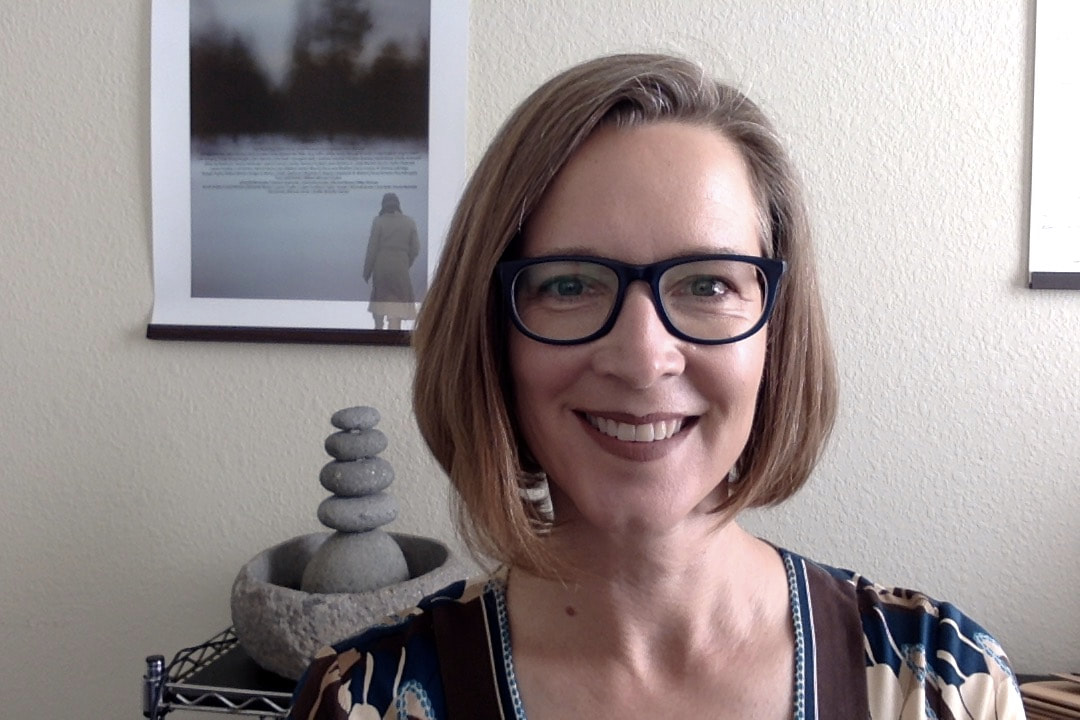
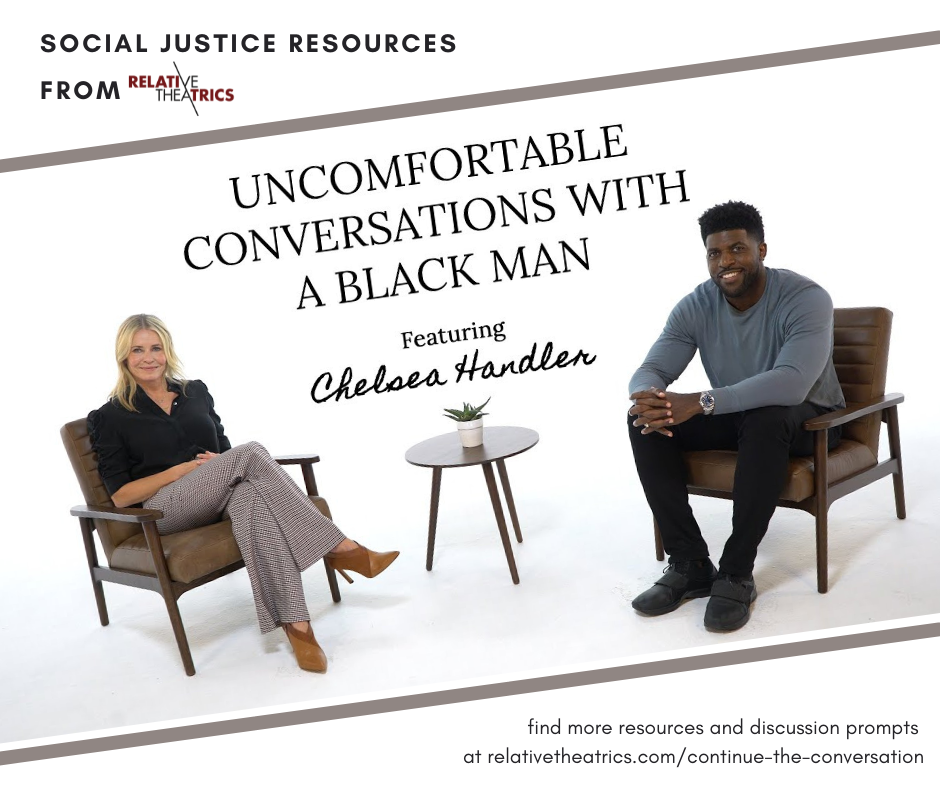
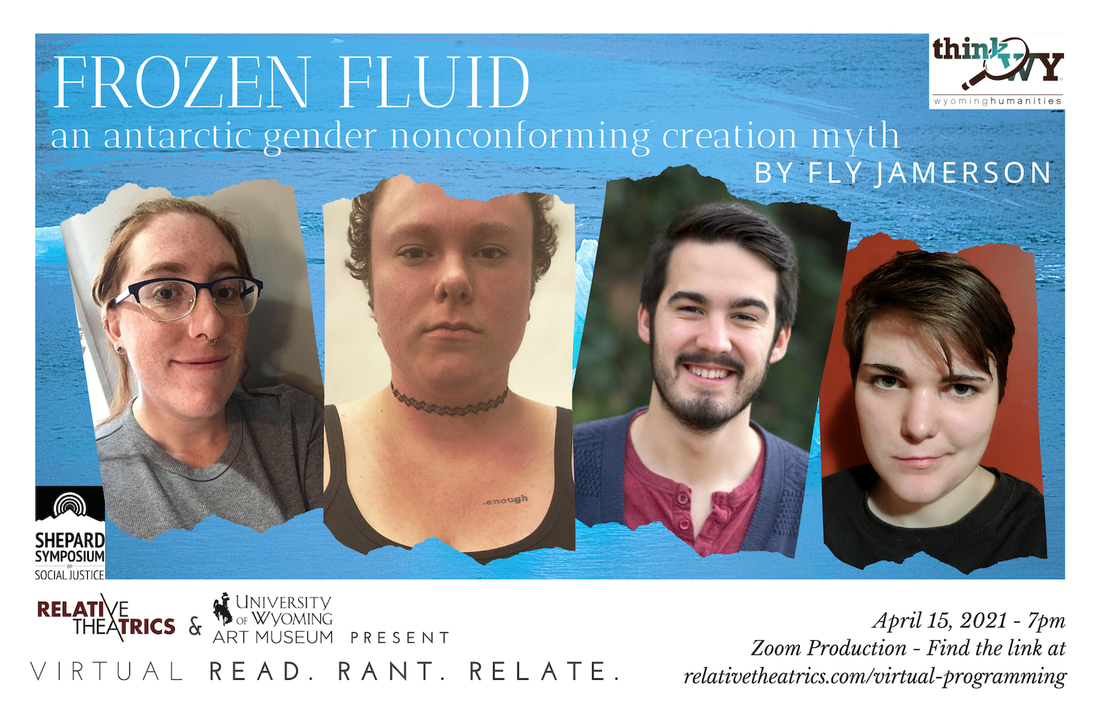
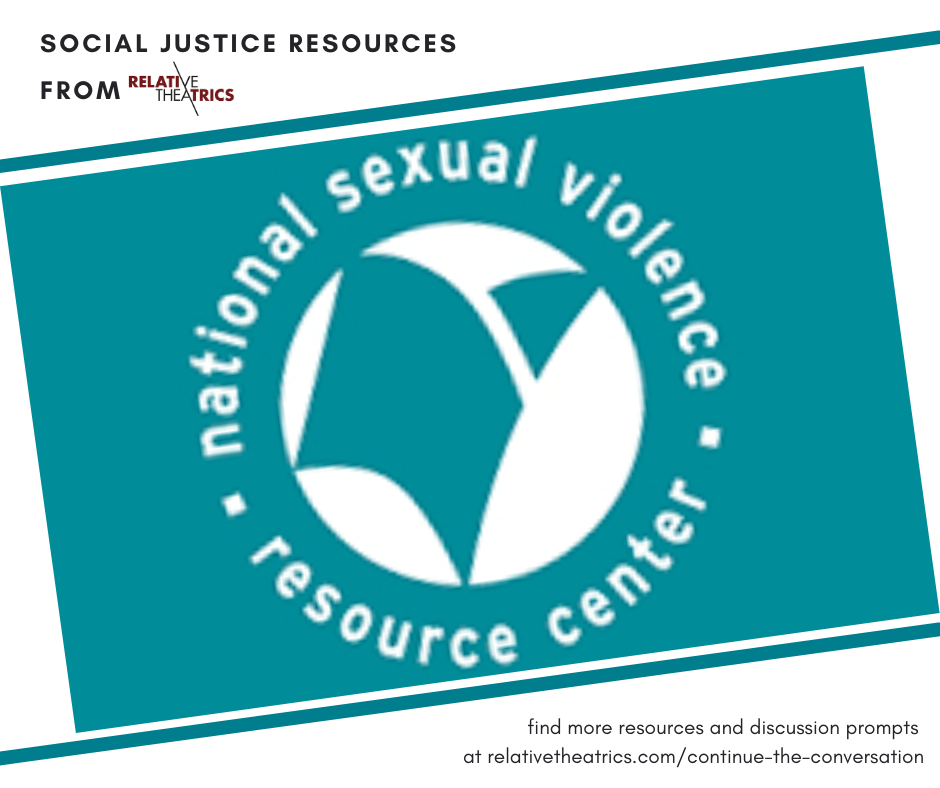
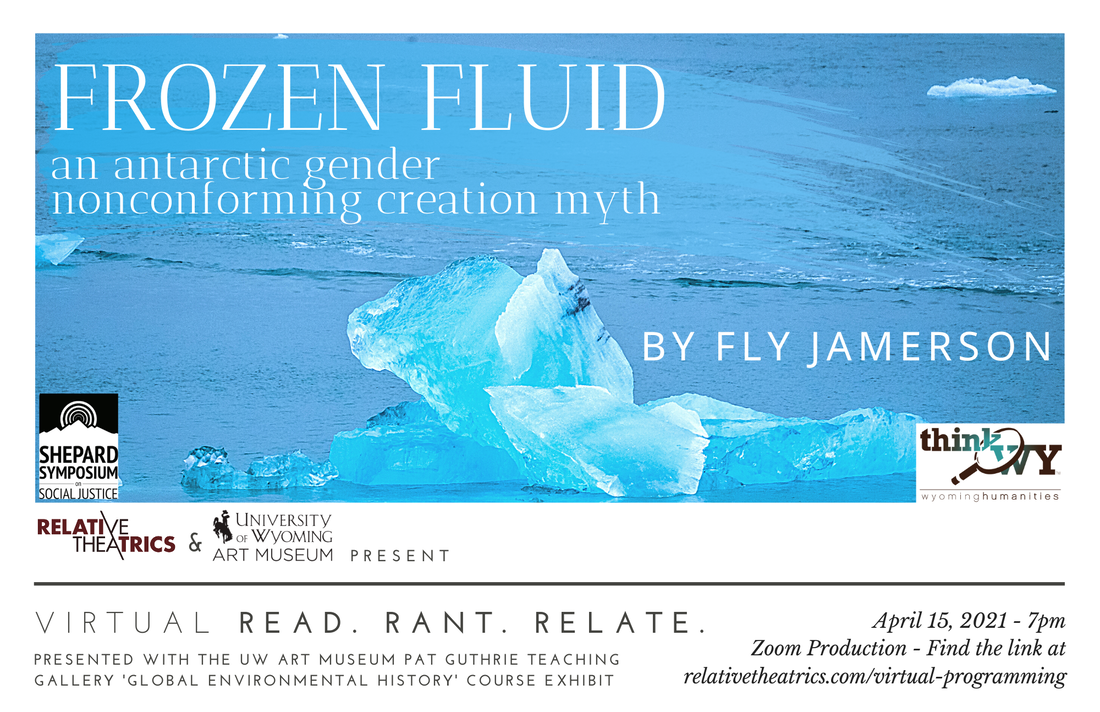
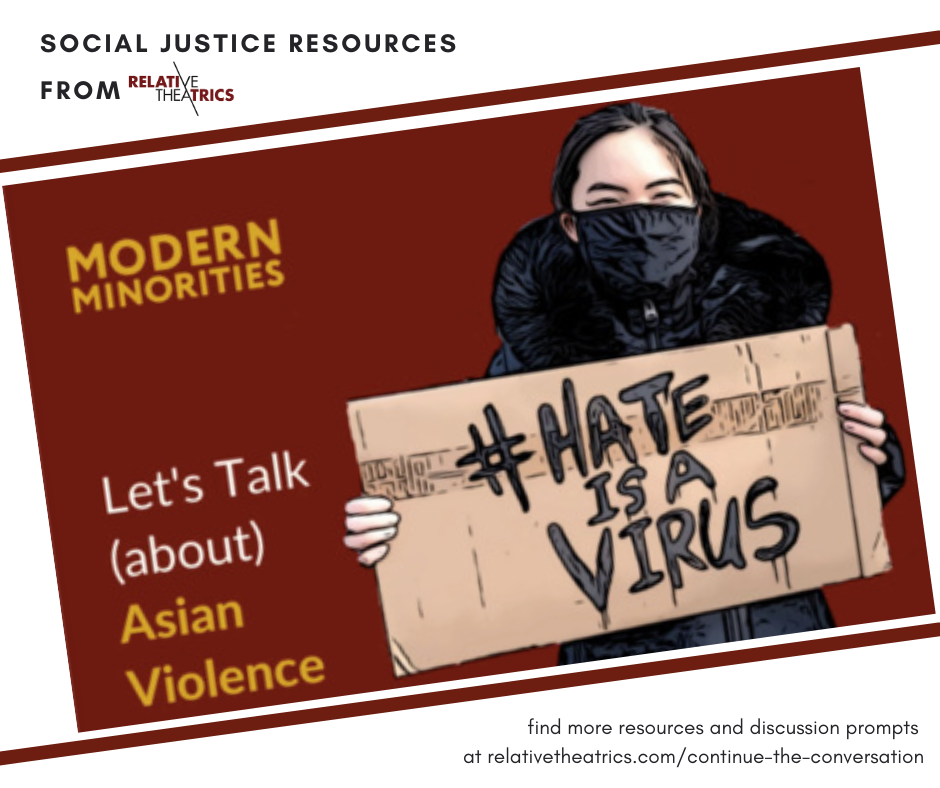
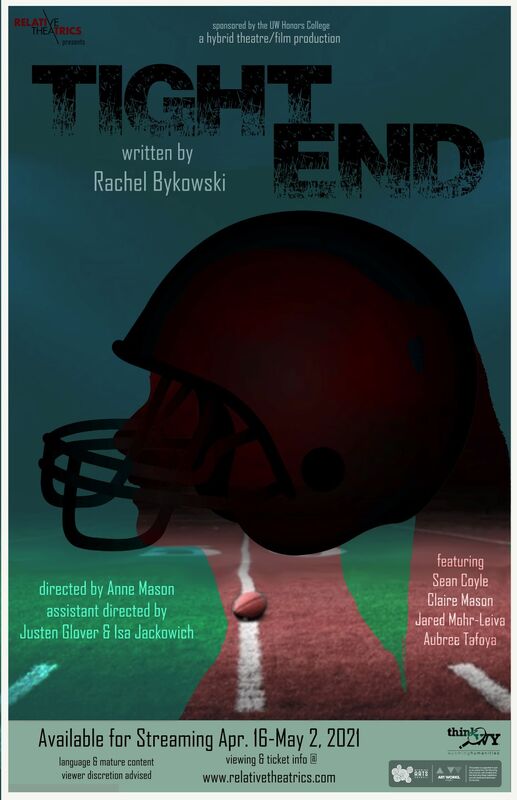
 RSS Feed
RSS Feed